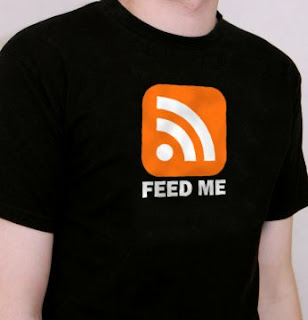 This week we were advised to try out Google’s free feed service, Google Reader. For anyone unfamiliar with the concept of Google Reader (like I was), the idea is that happy little internet users venture off to their favourite websites and sign up for RSS “feeds”, which are then neatly collected and organised in the Reader for you to view at a glance. It’s like surfing the entire web on just one website. I had to agree that at first all of this seemed like a great idea. It made the net so much easier.
This week we were advised to try out Google’s free feed service, Google Reader. For anyone unfamiliar with the concept of Google Reader (like I was), the idea is that happy little internet users venture off to their favourite websites and sign up for RSS “feeds”, which are then neatly collected and organised in the Reader for you to view at a glance. It’s like surfing the entire web on just one website. I had to agree that at first all of this seemed like a great idea. It made the net so much easier.Rather than wasting valuable seconds typing in web addresses I could just see all the good stuff right there in front of me, clear as day.
Pretty much all of my favourite websites offered these RSS feeds so…well…that was just great.
But a few days later, when I signed in to the Reader I was granted with a surprise…literally thousands of articles. Thousands!
Reader was supposed to make the web easier but instead it just made things ridiculously complicated. How was I going to be able to sift through thousands of articles? And even if I did do that, by tomorrow there would be hundreds more for me.
I suppose that Reader is perhaps more suited to people with a very clear idea of the kind of things they want. When I go online I tend to look at a wide range of different websites, covering lots of subjects. This is all good when I can click onto any website and browse its content at will, but when everything is collected together and handed to me in one big bundle, all this information that I’d usually find entertaining or interesting now seems like too much of a chore.
So I guess that RSS feeds and Google Reader area good idea and very useful to somebody with a niche interest and/or checks the reader regularly enough to avoid getting buried under the weight of information coughed up. Perhaps once I fiddle around with the reader and fine tune my website subscriptions until the whole thing becomes manageable, Google Reader will turn out be an extremely useful tool. But until then, I’ve got 1000+ articles to get through…
Photo Courtesy of bytelove.com
 Today we were asked to find sources and contacts for a hypothetical story on old people that use the internet. Here's what I found:
Today we were asked to find sources and contacts for a hypothetical story on old people that use the internet. Here's what I found: